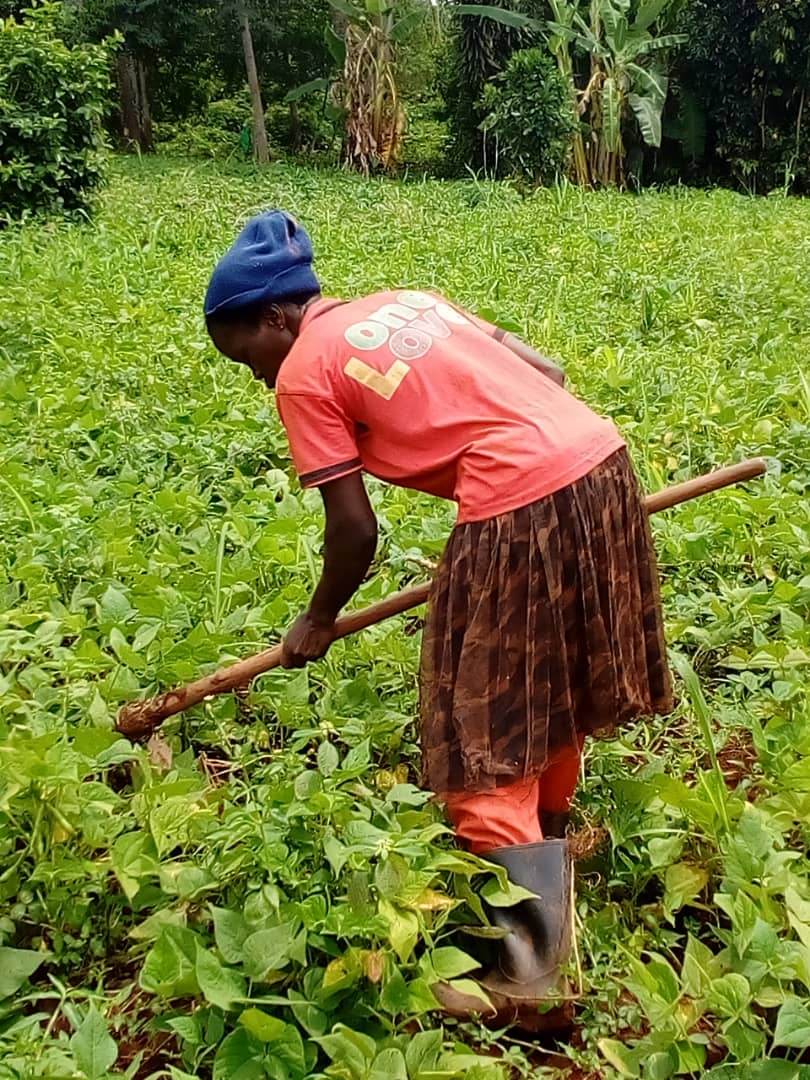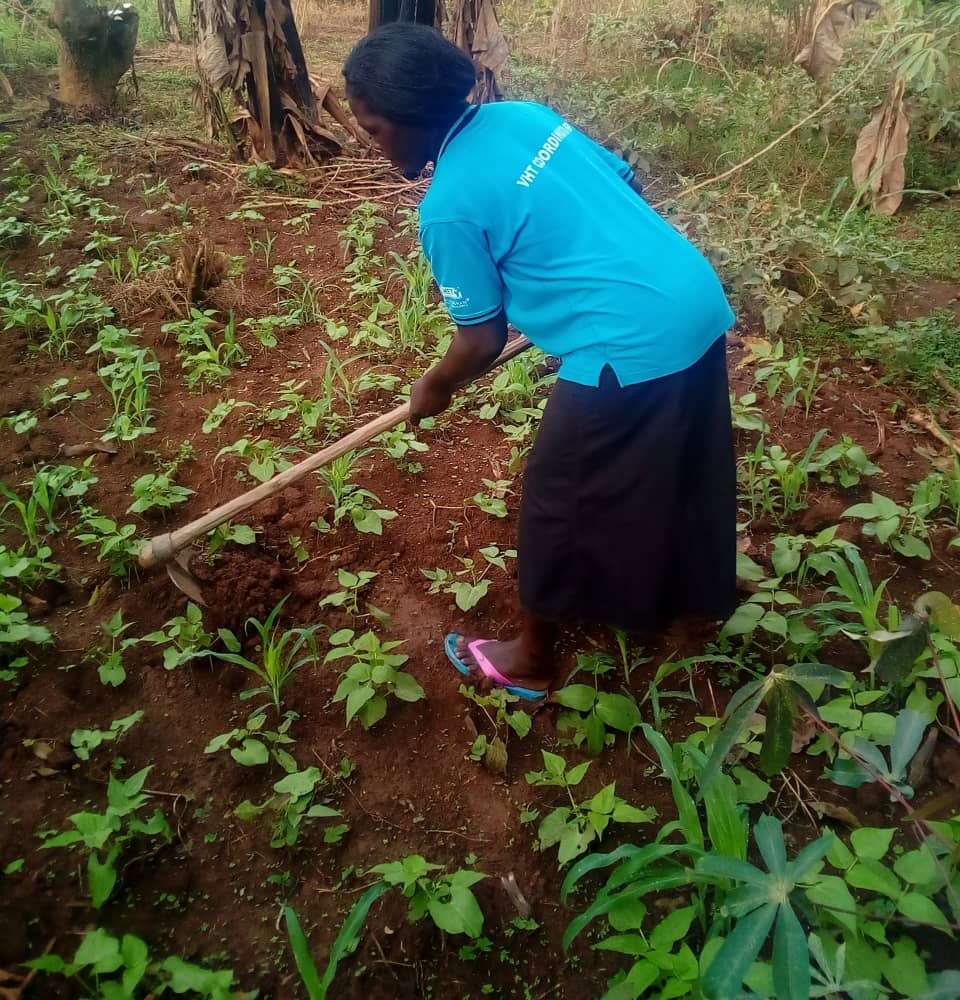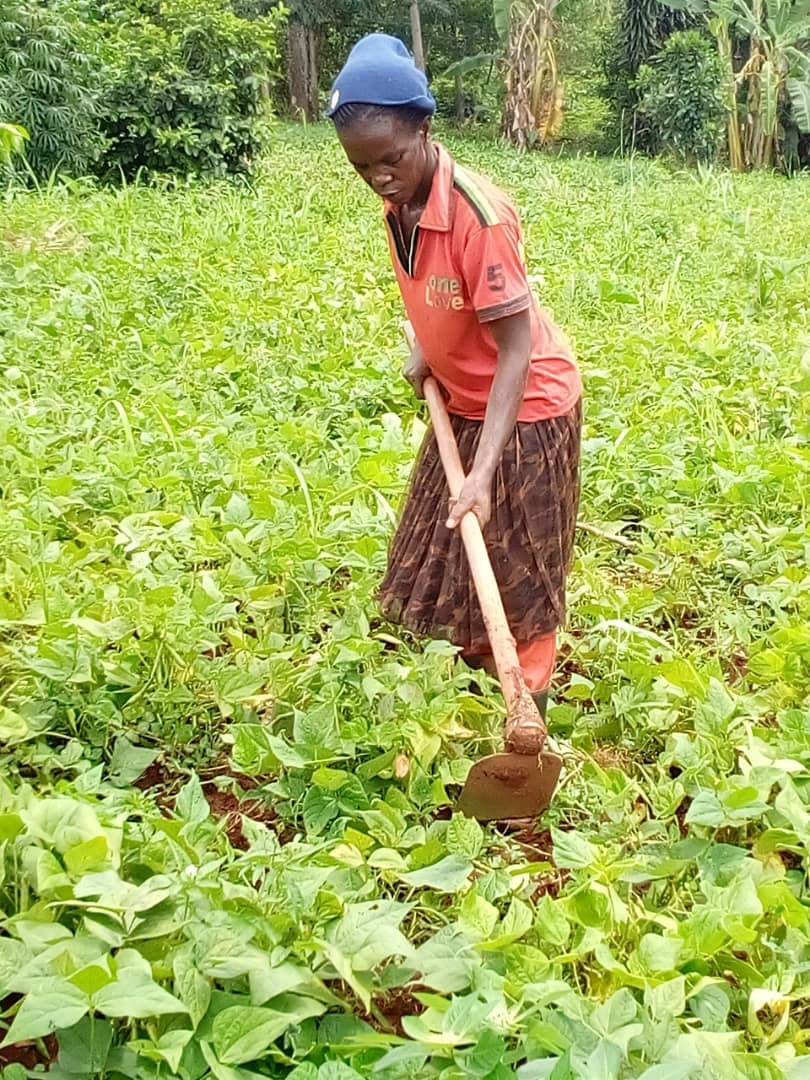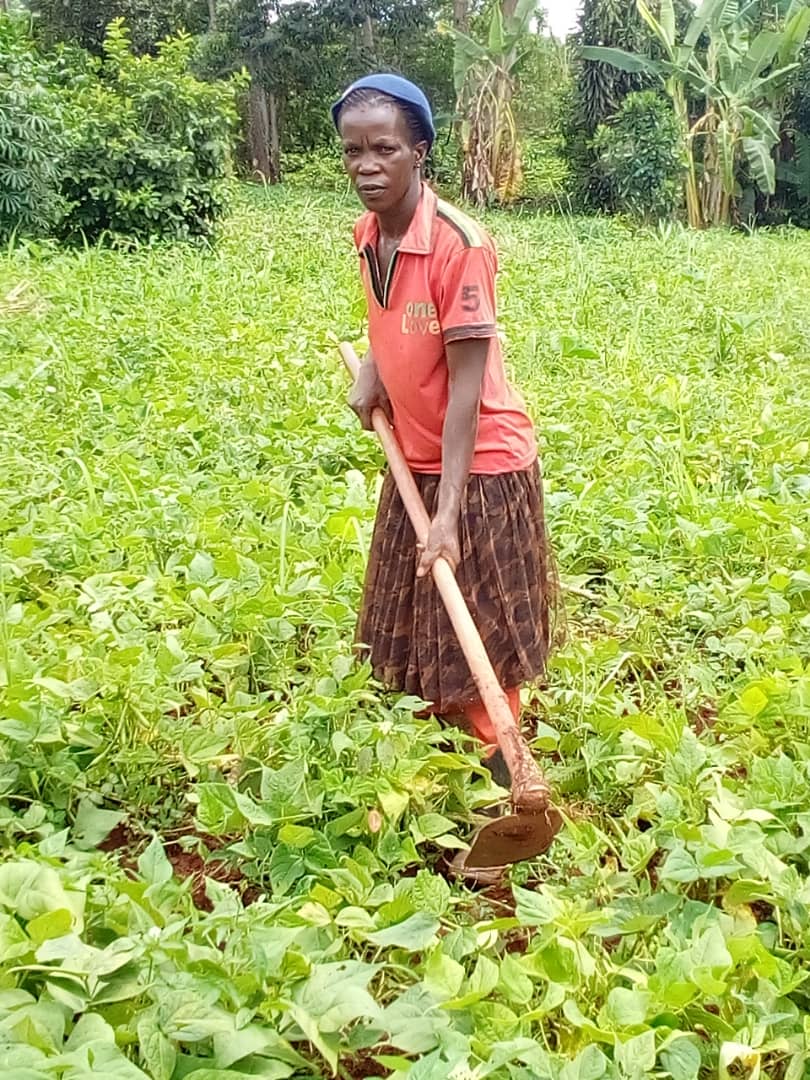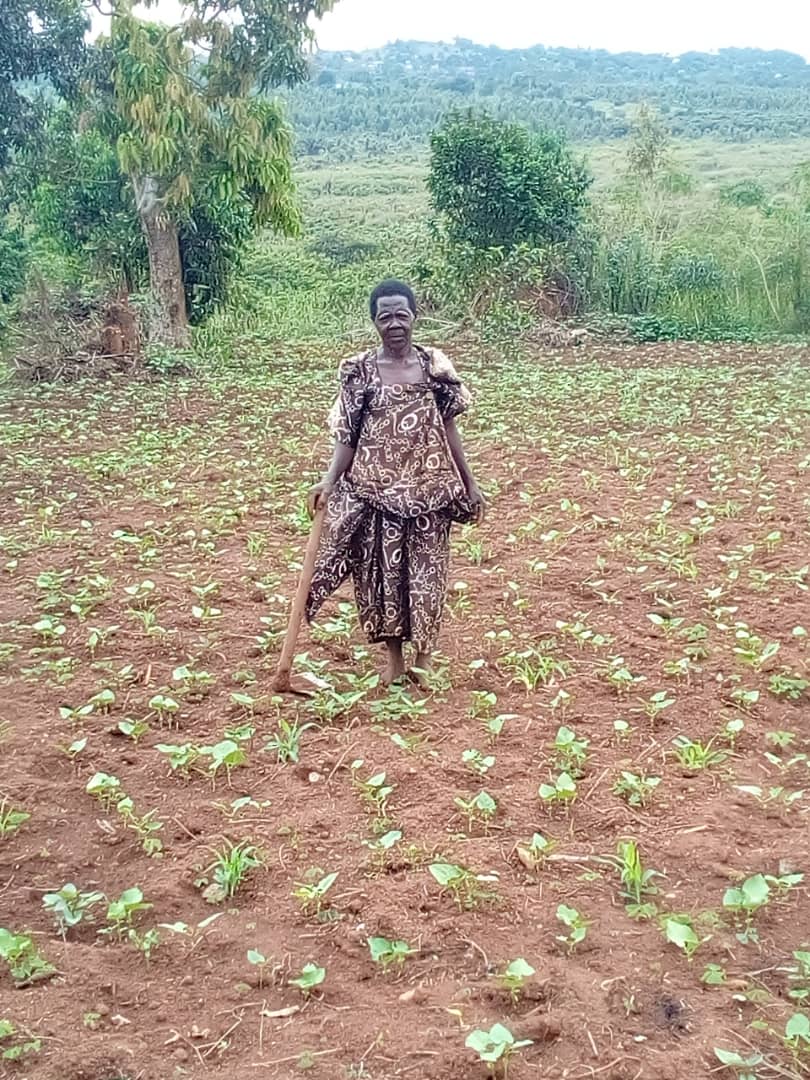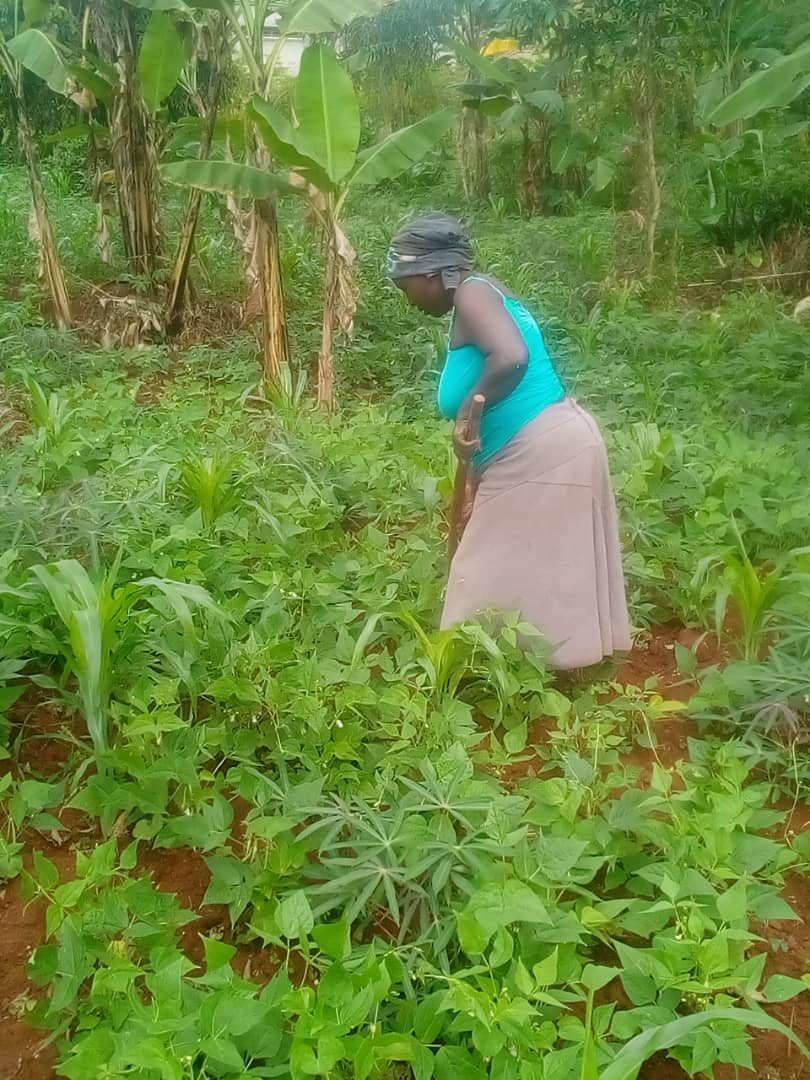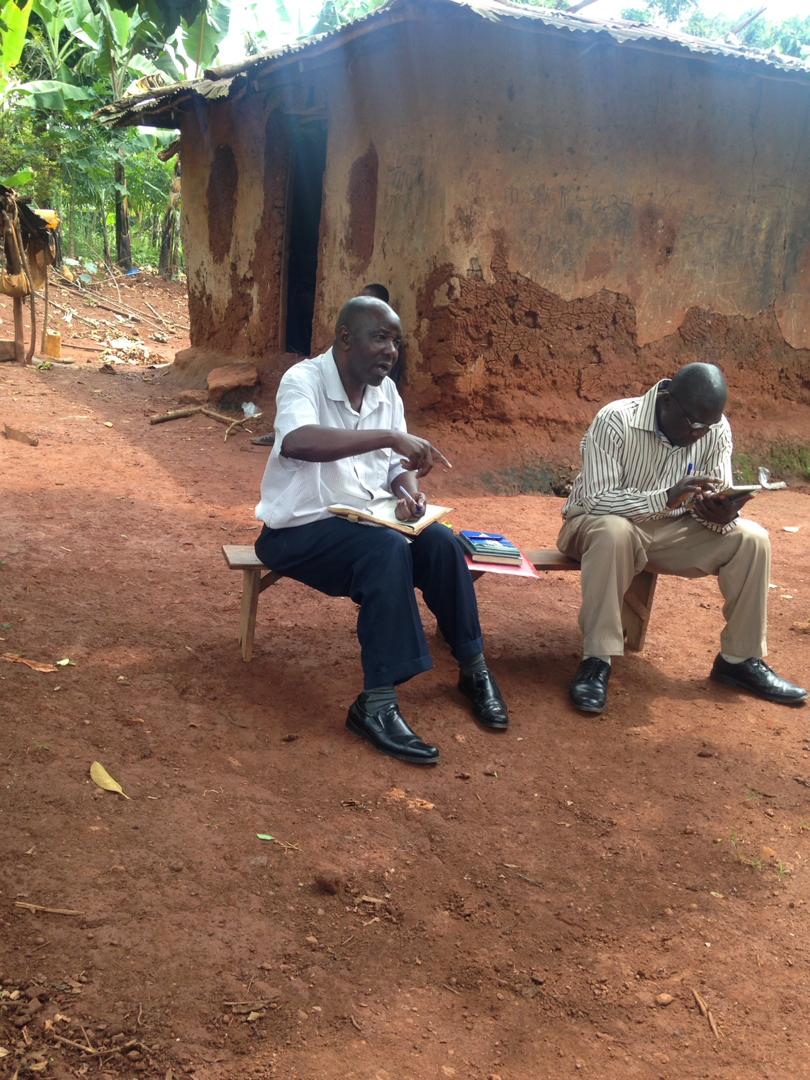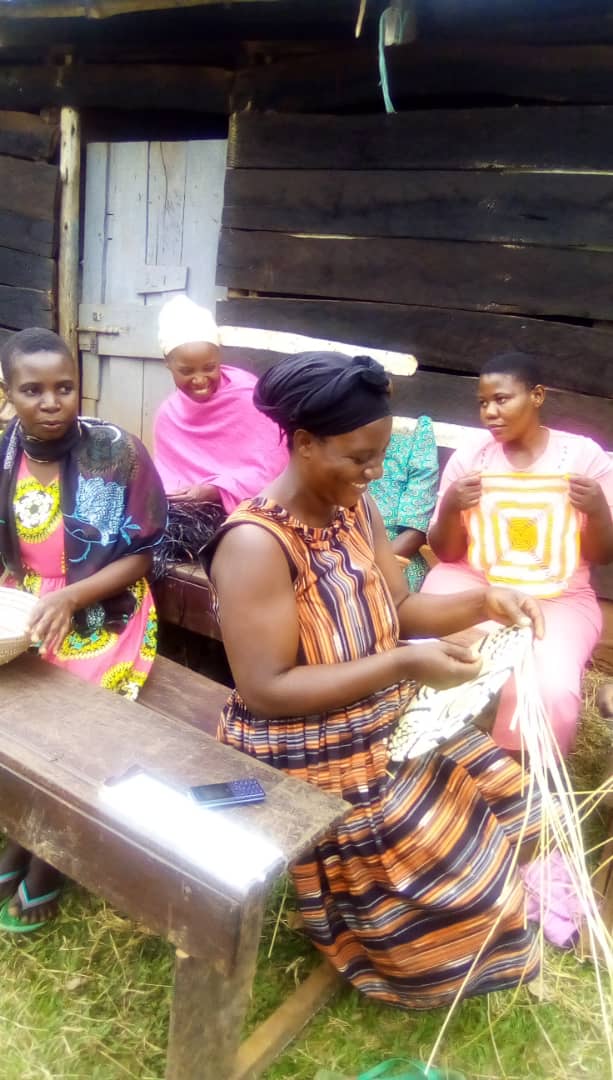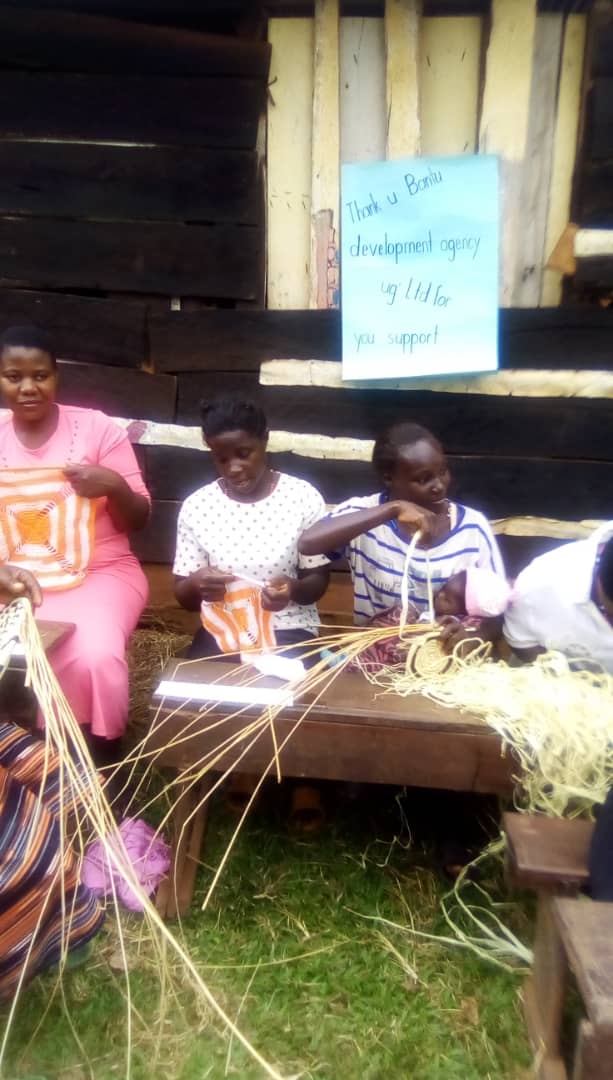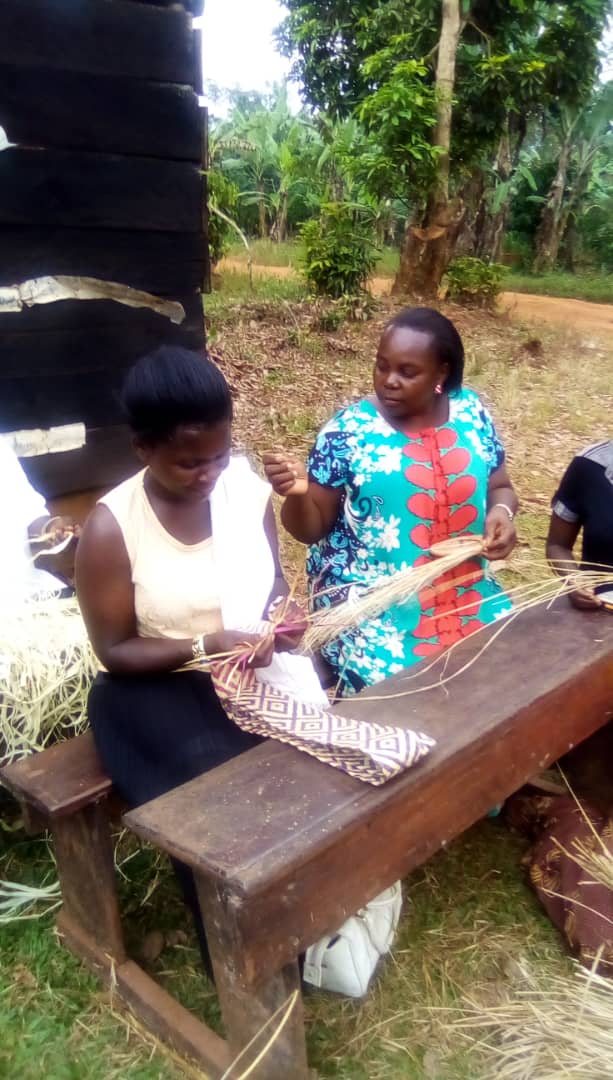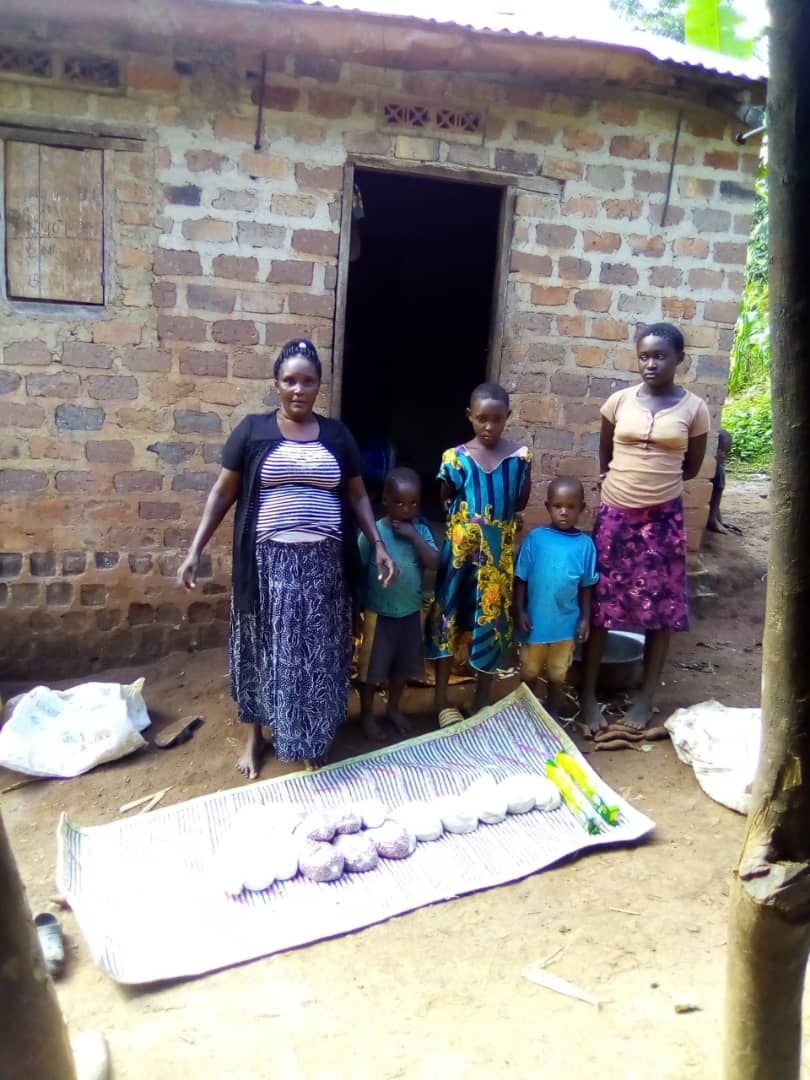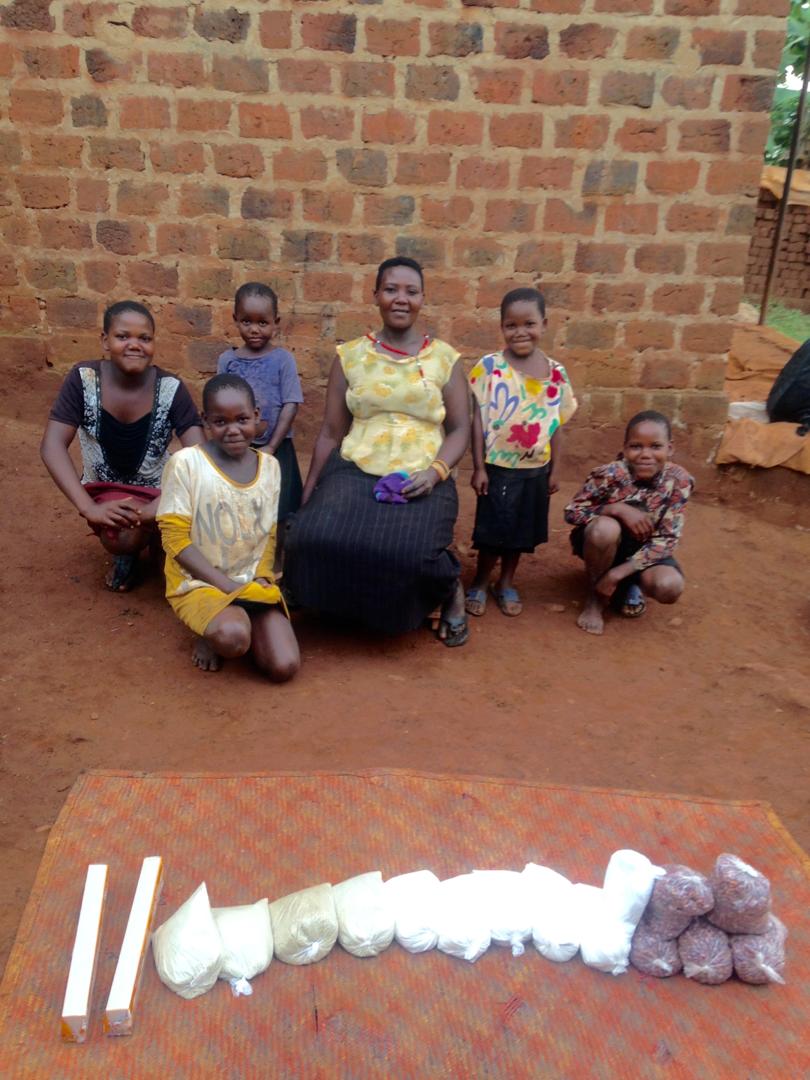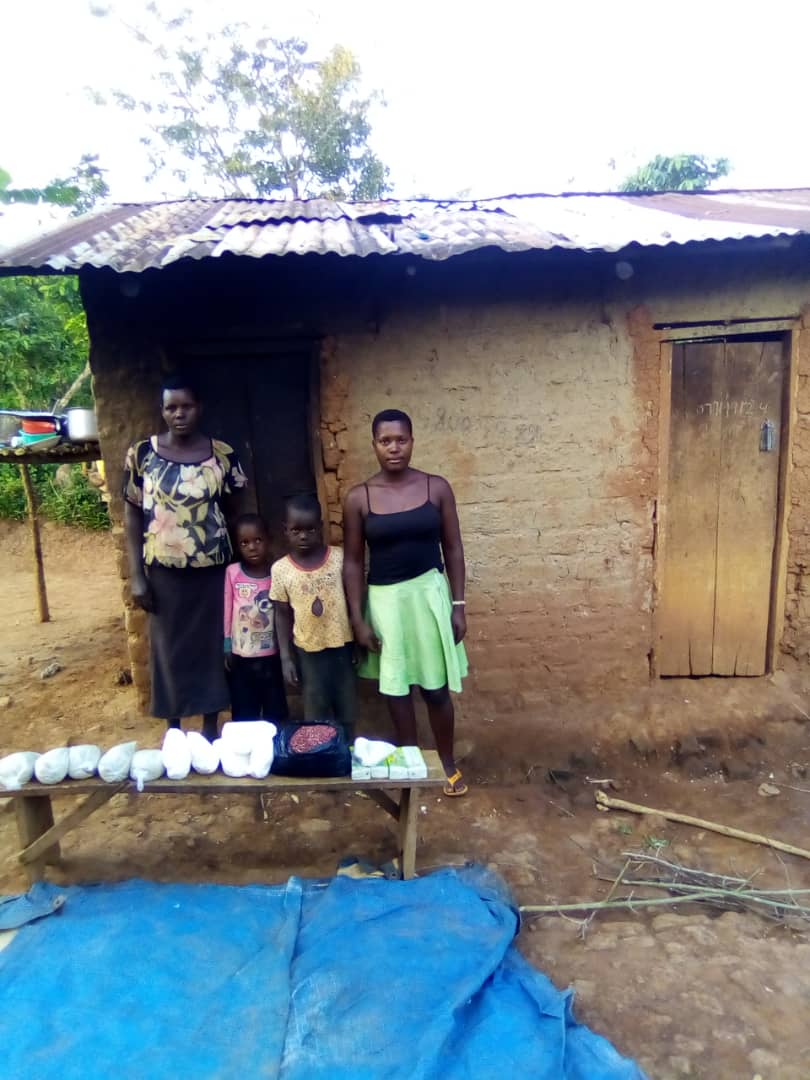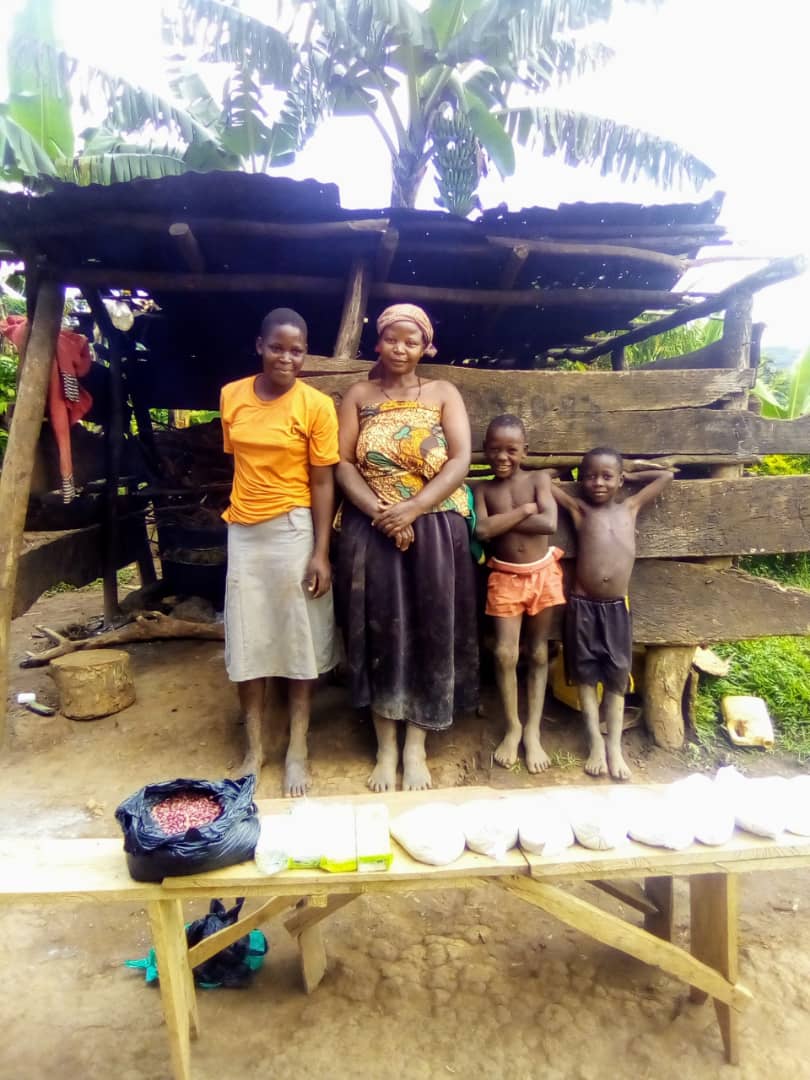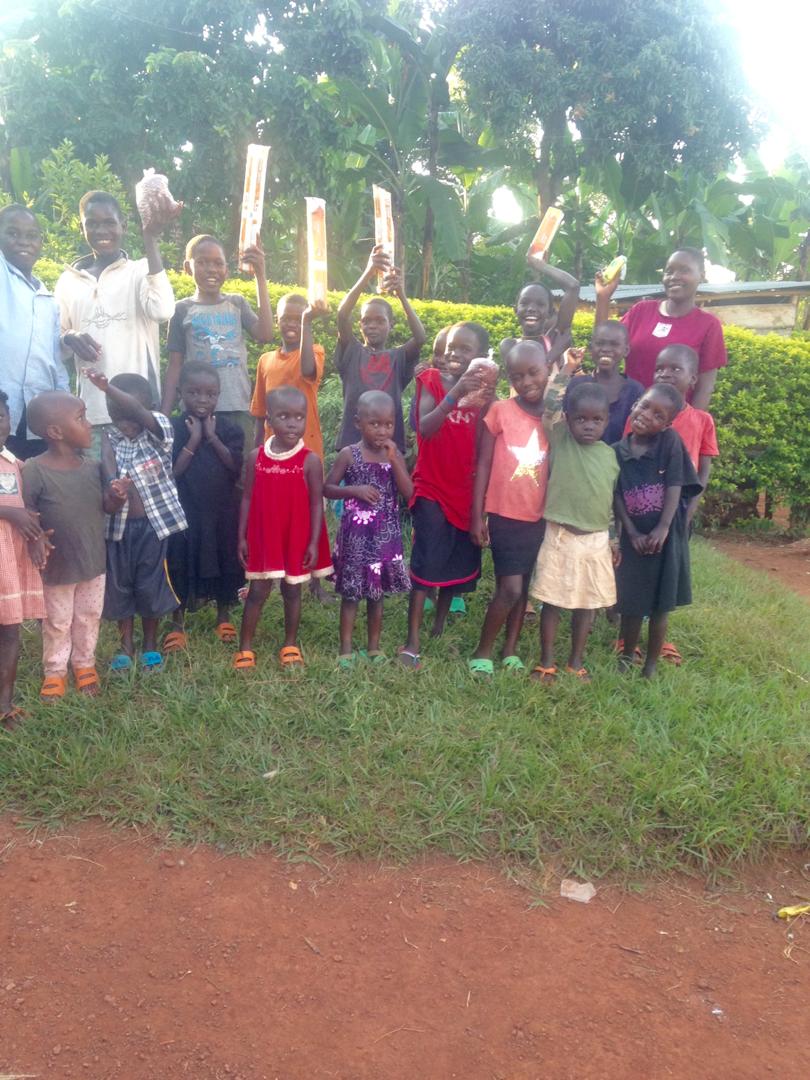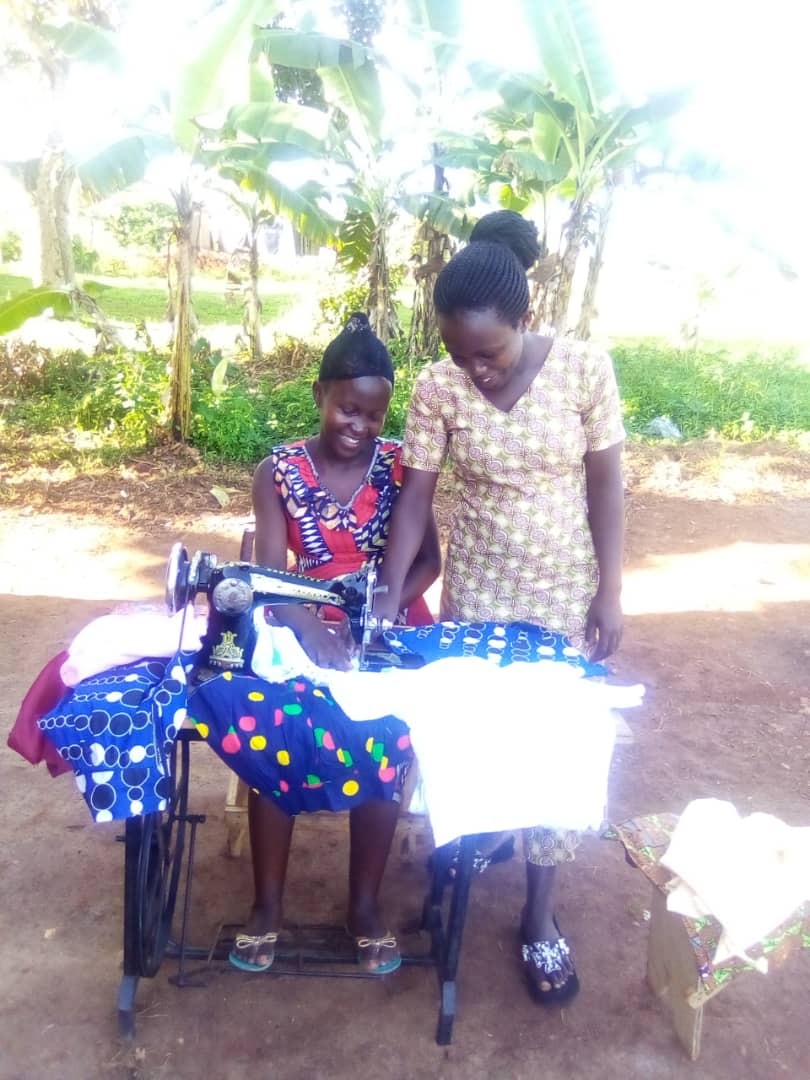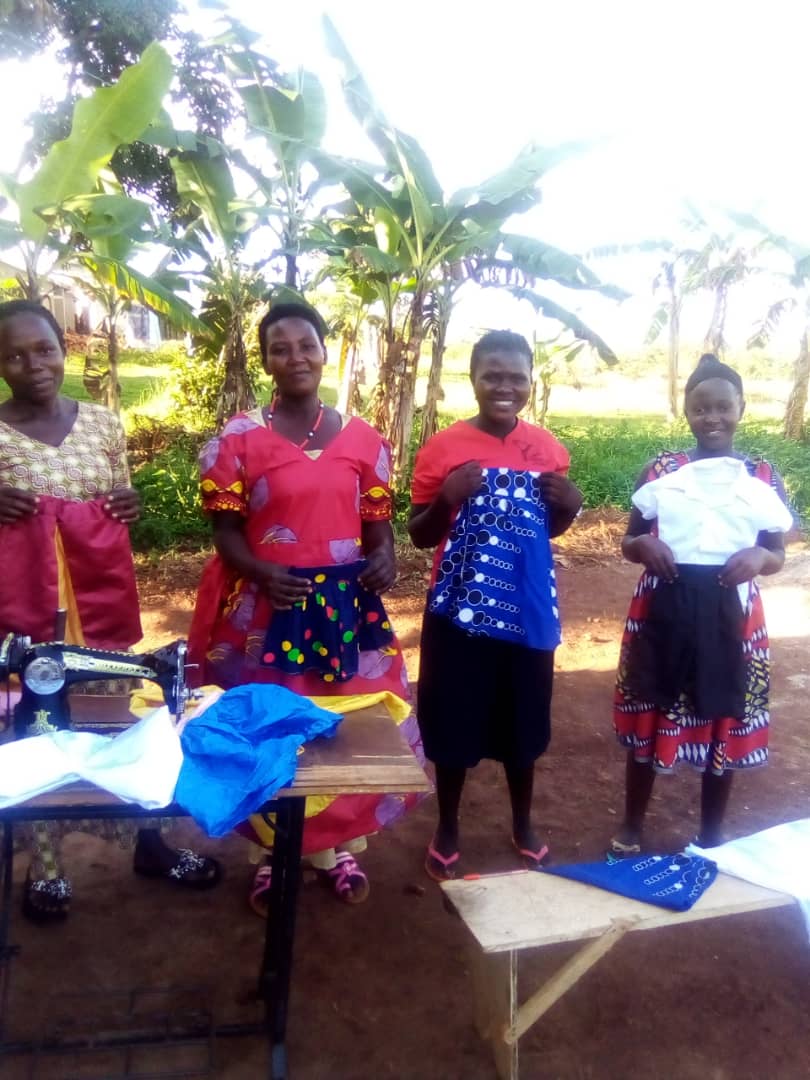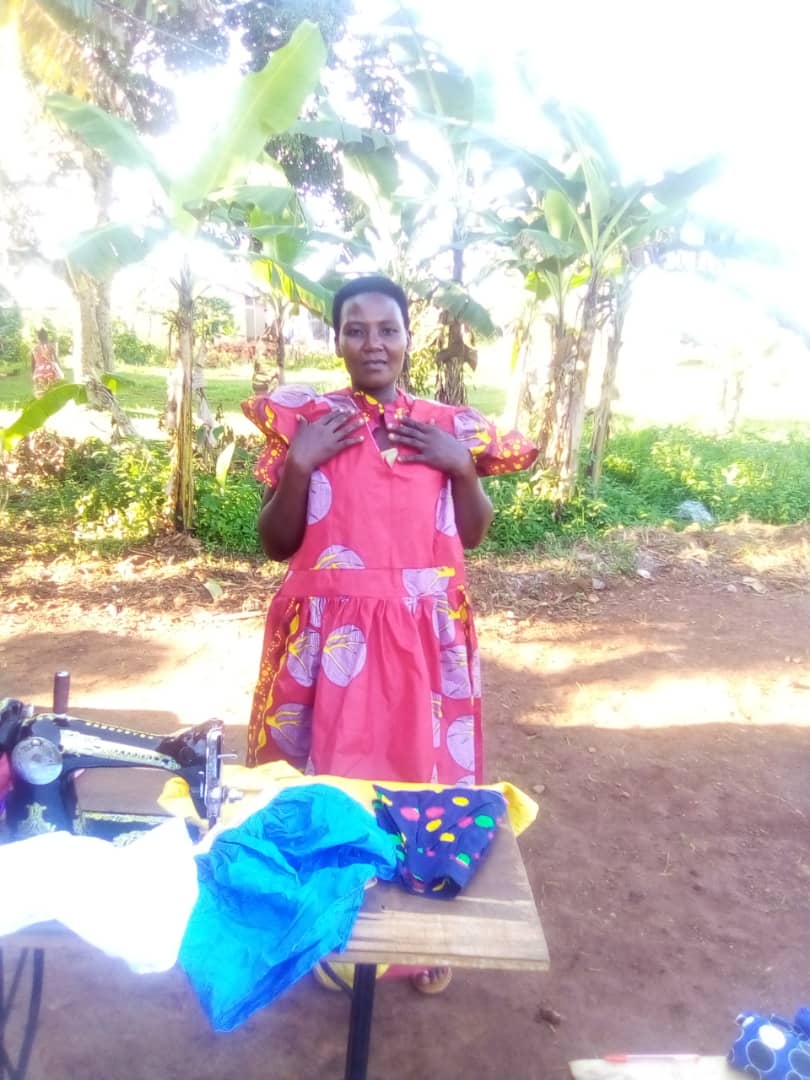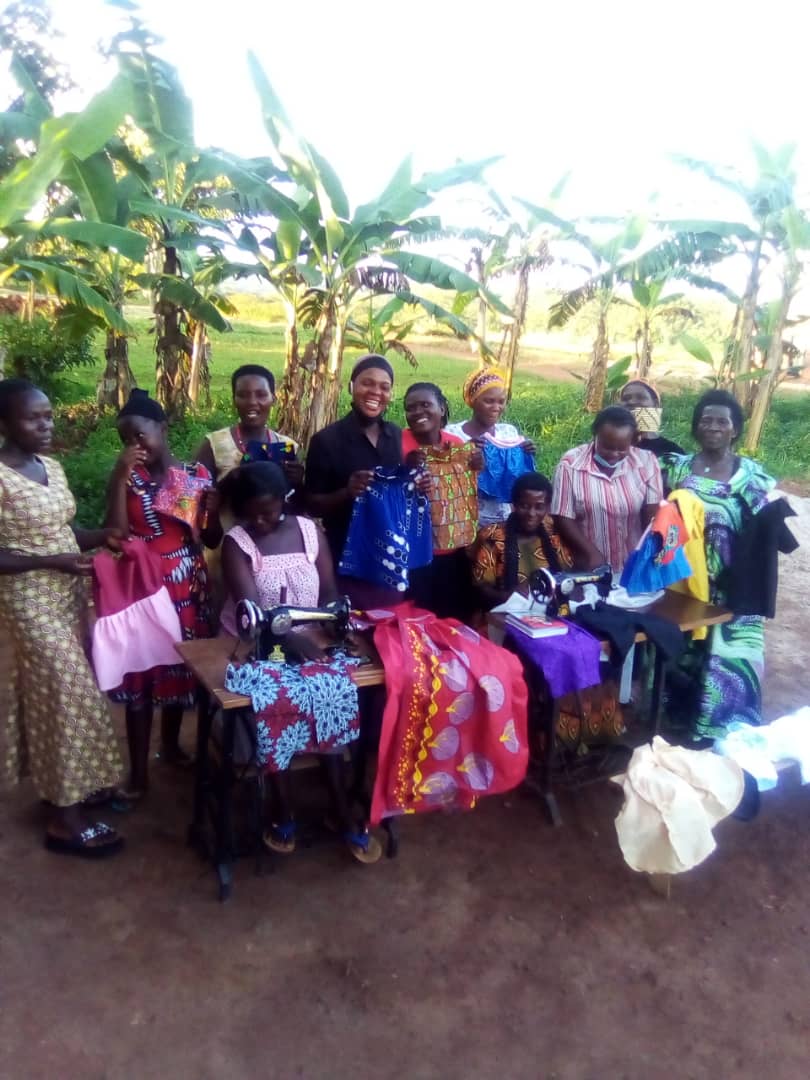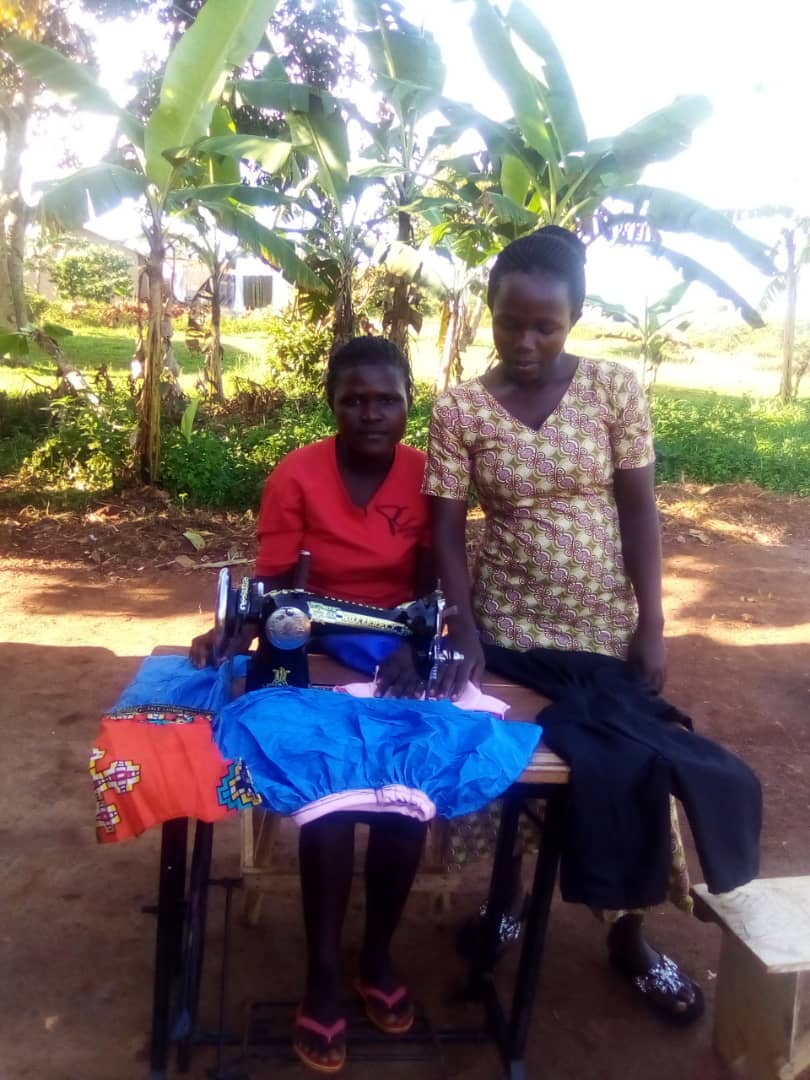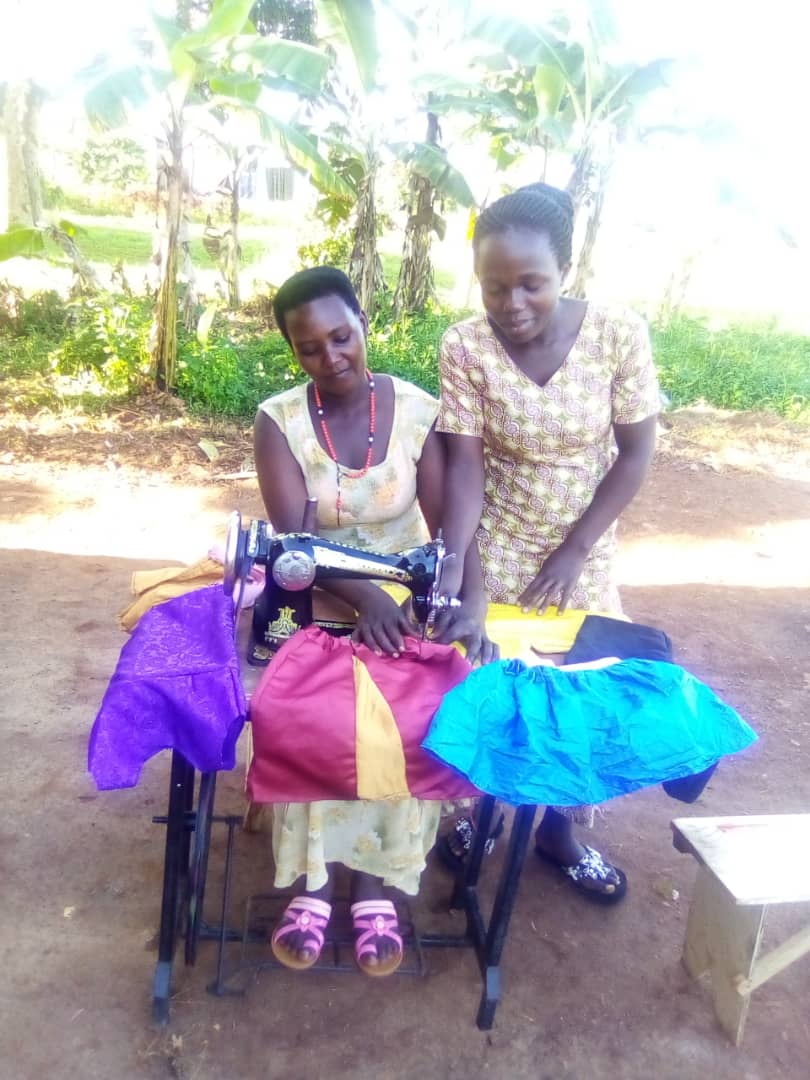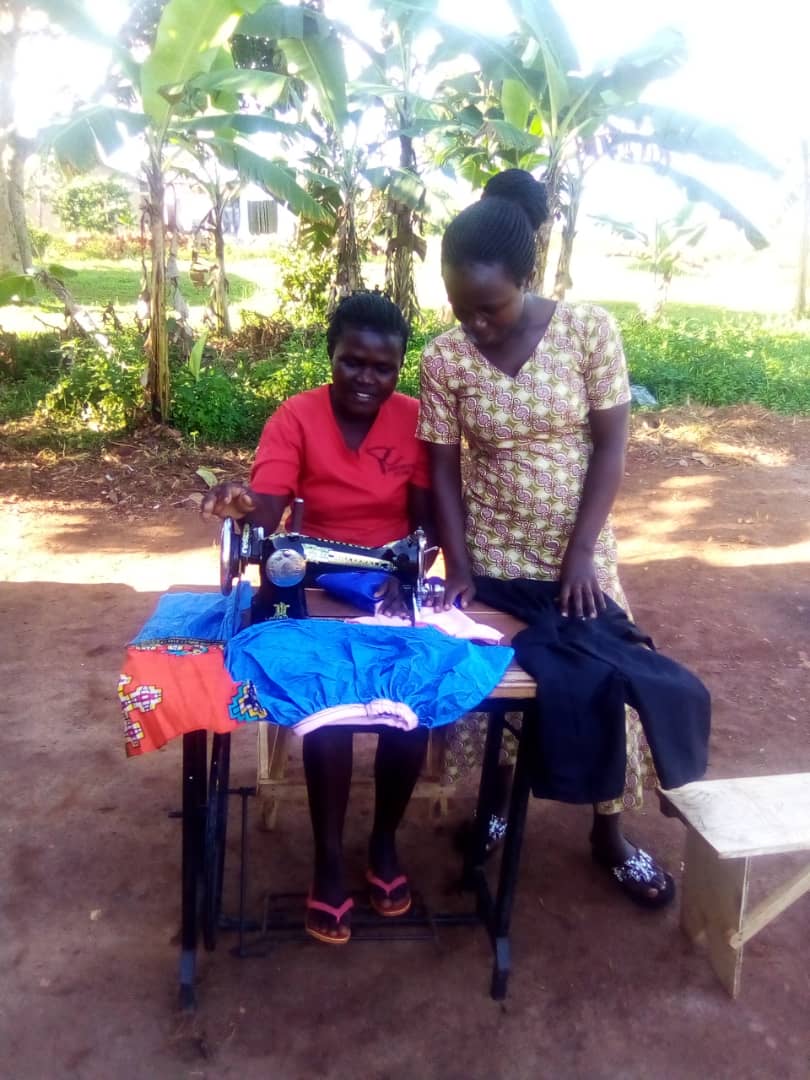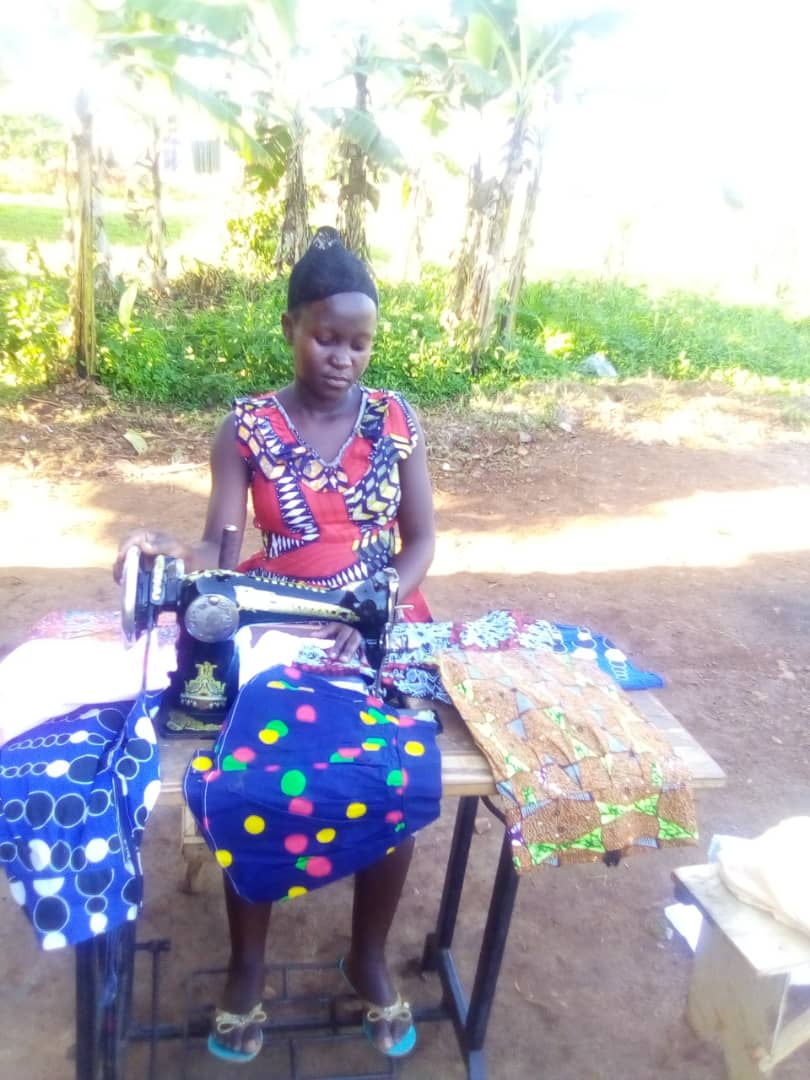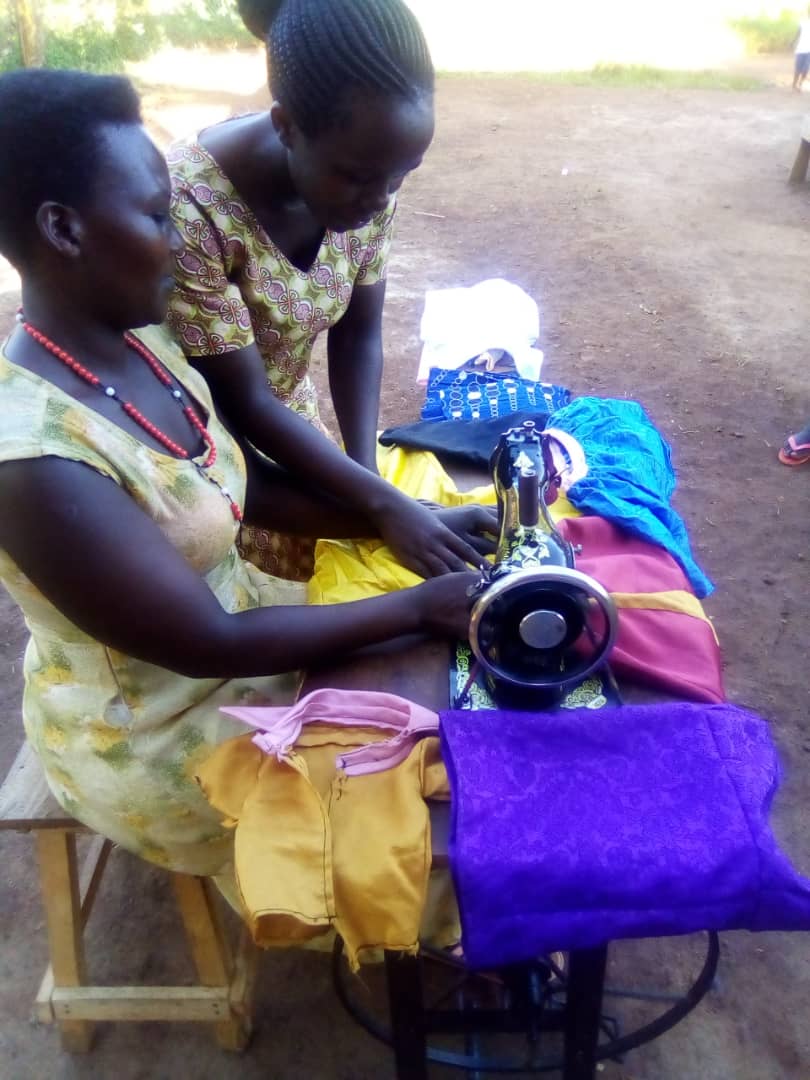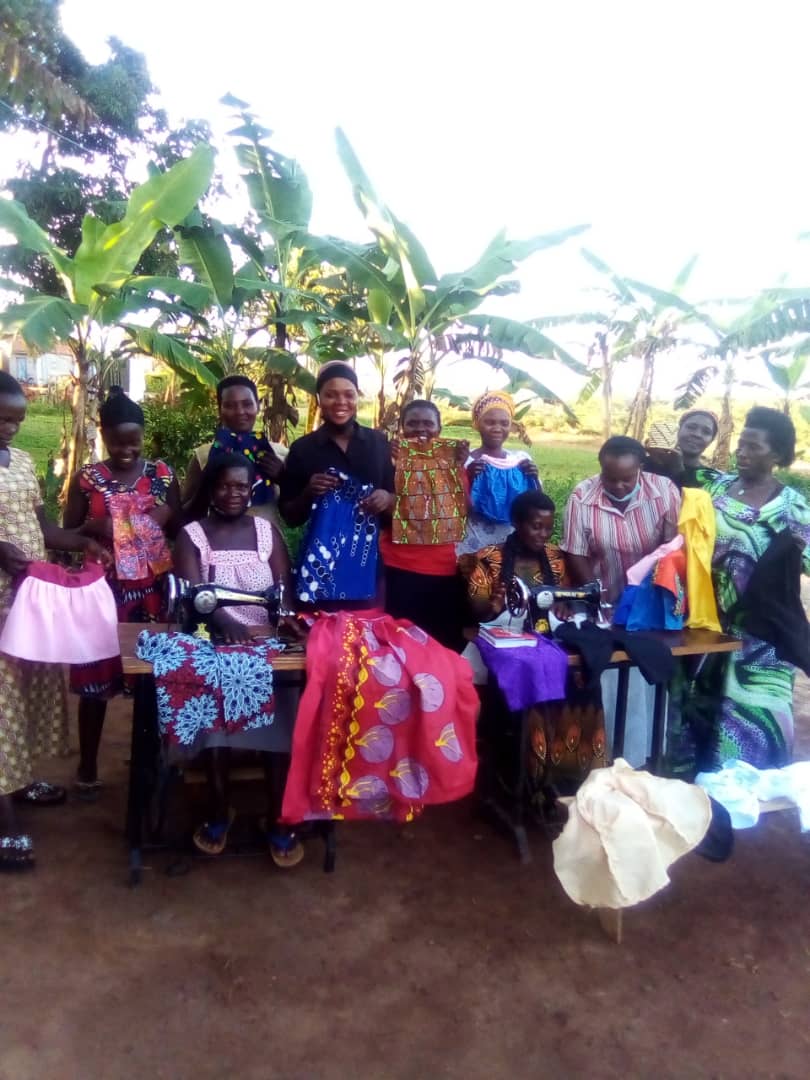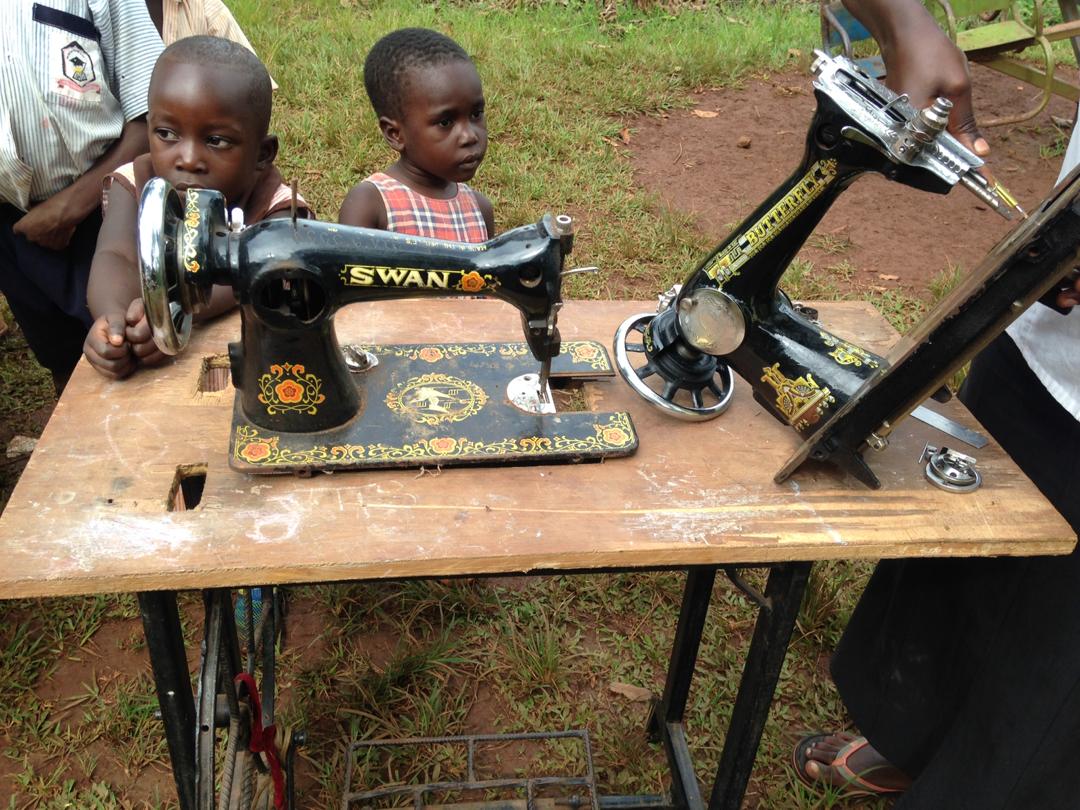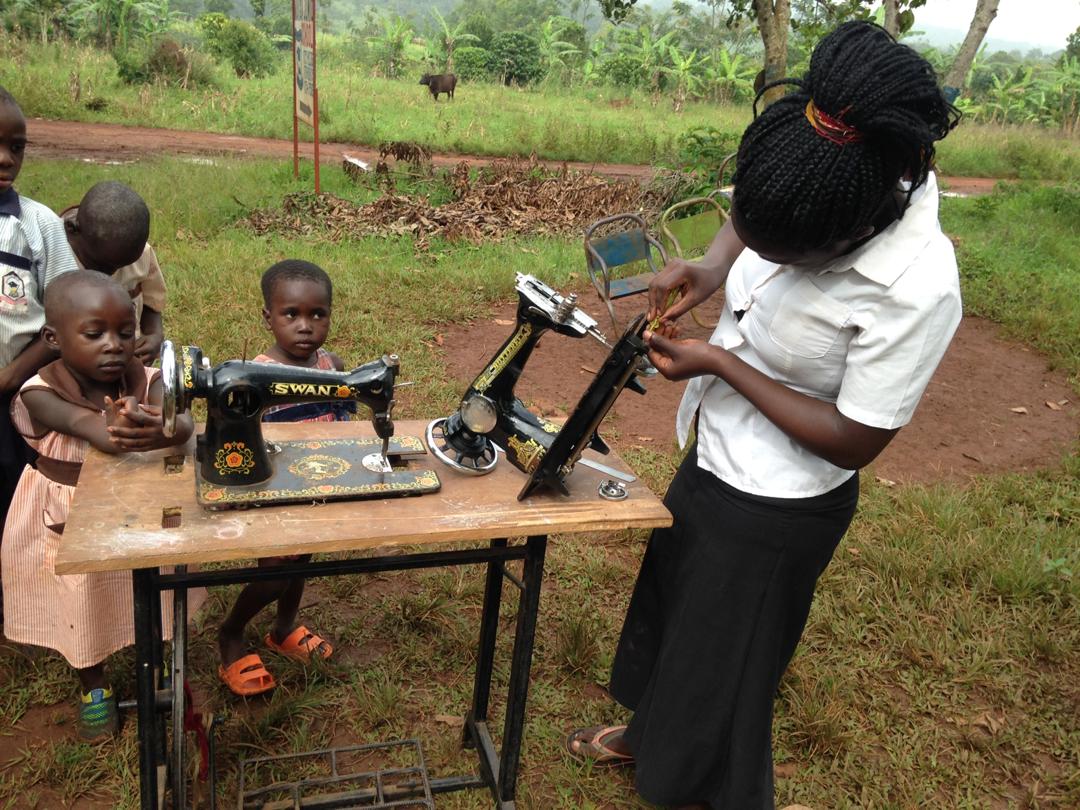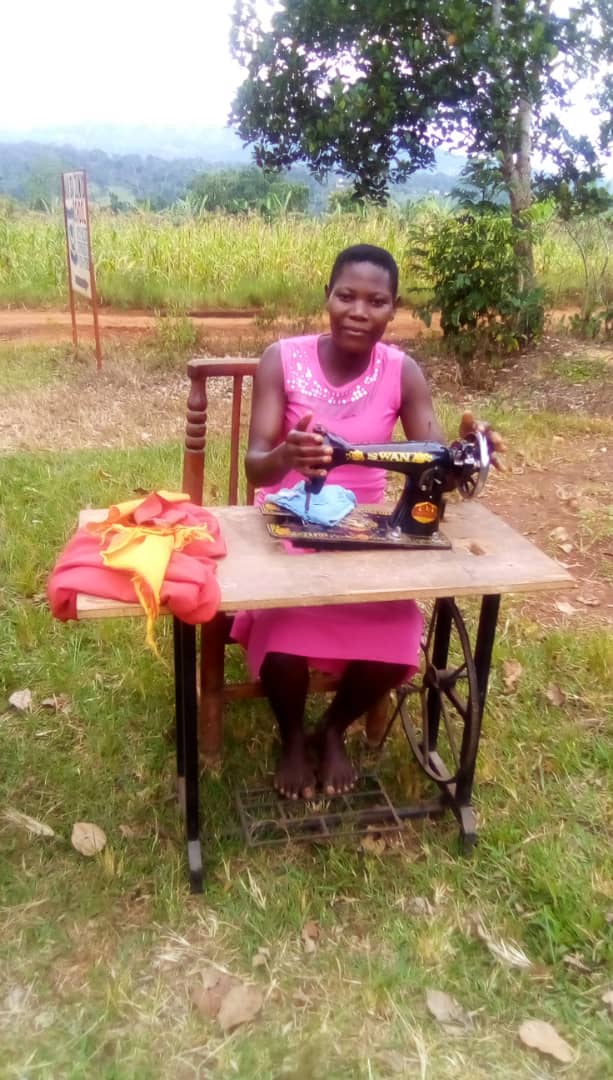
We care thus we serve
Bantu stands for people living together in the same community and working together for the common good.
Uganda: We care for and work with disadvantaged and needy people in Uganda, especially women and children, orphans, the elderly and those infected with or affected by HIV/Aids.
Augsburg: Our group has been working together since 2017; the association was finally established in February 2020. For more info about us click here (About us).
e. V.: We are a registered non-profit organisation under German tax law.
Bantu Uganda Augsburg e.V.
Encourages the holistic development of all people, and supports the empowerment of women and children on the way to self- sufficiency and economic independency through projects in the areas of:
- Emergency relief
- Education
- Training opportunities in agriculture and other business skills
To learn more about our projects, click here (Projects, Projects). To find out how you can help us, click here (Donations) Latest information here (Newsletter) To contact us write to augsburg@bantu-uganda.de
Rebecca Nakabuye (2nd Chairperson)
I come from Ssisa in Uganda. I did my apprenticeship here in Augsburg as a kindergarten teacher. I feel very passionately about Bantu and do everything in my power to help my own people.

Agnes O’Sullivan (1st Chairperson)
I am Irish. I feel that helping others is part of my calling. That is what I was brought up with. These projects mean everything to me and I am glad to be part of this association. Sometimes miracles do happen, when we believe.

Heri Kilamile (Committee member)
I am an educator living in Augsburg, Germany. Part of my job is to help others to be independent and move on with their lives. Supporting others in any way within my stretch is part of my duty. I come from Tanzania.

Sally Rascher (Secretary)
I was born in England. I have been in Augsburg for almost 50 years and am a mother and grandmother. For years I have been helping those in need by supporting different organizations. It is good to be able to help Becky’s people in Uganda to help themselves.

Rev. Frauke Ackermann (Treasurer)
I am working as a pharmacist and self-supporting priest. After 16 years in Africa I have lost my heart to this continent and her people. May God bless Africa, and move many people to help those in need.

Our History
The story of an amazing friendship
It all started with one woman, Rebecca Nabakuye. Rebecca desperately wanted to improve the situation in her home country Uganda. When she worked as an intern in a kindergarten in Augsburg she met Agnes, a member of St. Boniface Church. Agnes and Becky, as she was called by then, became friends. Together they helped with Sunday school and attended meeting of the Daughters of the King, a lay order for women (www.doknational.org). Becky learned to speak German very well.
But she had not forgotten her aim to help her people at home. Before she had to go back in 2018 to apply for new visa to study, she received a grant from the Daughters of the King; and all her friends organised an African festival in Augsburg in support of her plea. It was great fun with African music, food and fashion! When she was back in Uganda Becky used her time and skills, and together with reliable and experienced people, she founded the Christian organisation BANTU DEVELOPMENT AGENCY UGANDA LTD. Registered as an NGO, this initiative is committed to furthering economic independence of women and children through skills development. Together with Bantu Uganda Augsburg e.V their work started in Ssisa village (Wakiso district) this year.
For more info about their projects click here
Becky has meantime returned to Germany, and together we organised more fundraising events like a stall at the Christmas market 2019, and a sponsored bike ride. With her and you we aim to take the support for Uganda even further through contacts, fundraising and prayer!
Farming
Bantu Uganda Augsburg e.V. sponsors agricultural training, tools and seeds for families in Ssisa. The harvest will feed the family, provide seeds for next year and give them some extra money when selling the excess.

Sewing
Sewing machines were bought with the help of Bantu Uganda Augsburg e.V. Women are taught to make clothes for their families and for sale to gain some income.

Corona crisis help
During the lockdown in Uganda, many families went hungry. Bantu Uganda Augsburg e.V. helped with providing food parcels with basic commodities to over 45 families in the village.
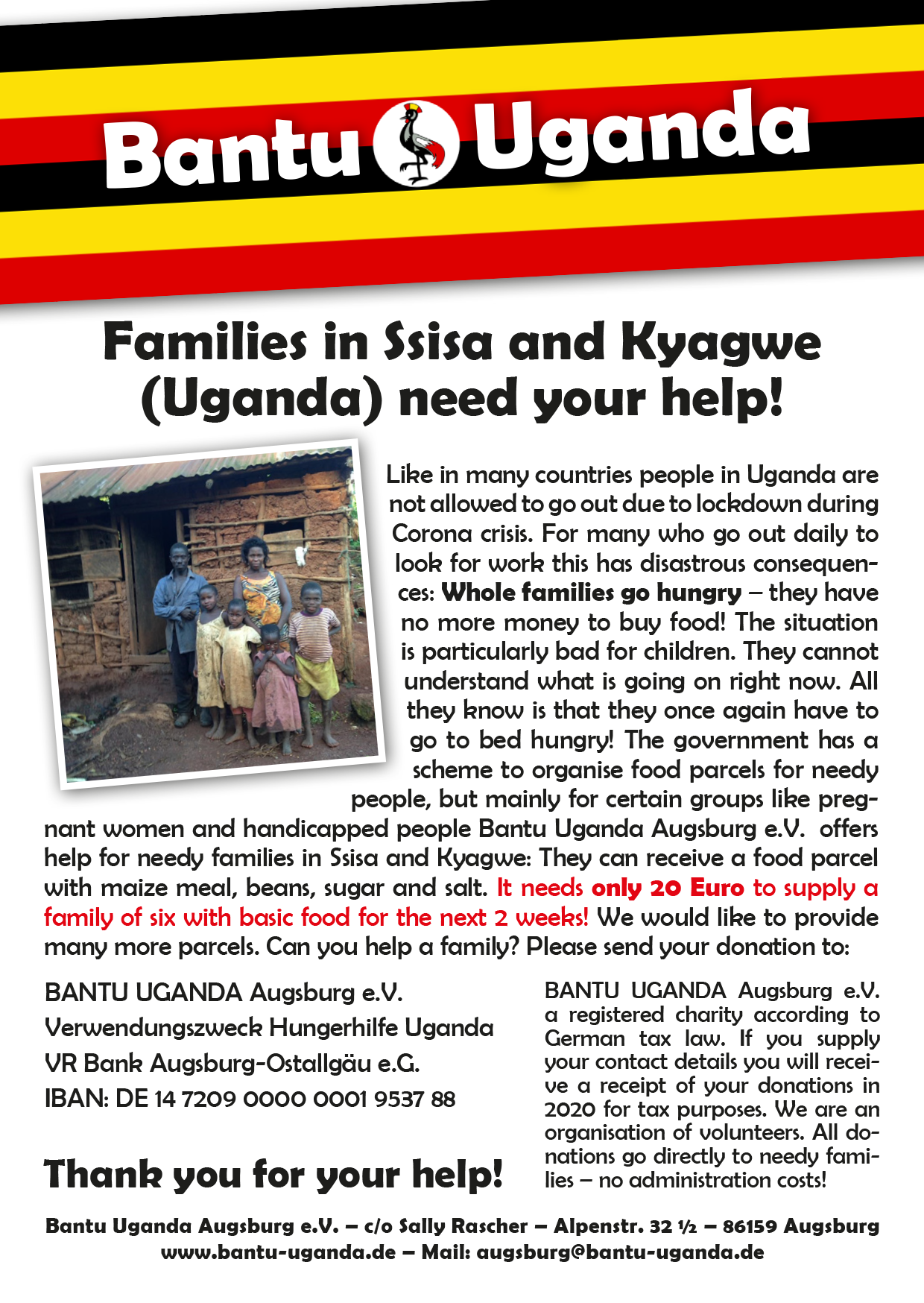
School sponsorship
Bantu Uganda Augsburg e.V. has been working together with a local school. Our commitment is to support the education of children to give them a better future. Watch this space for more info on school sponsorships in 2023! We need your help! One of the most crucial and natural basic human rights are those of food and education. The two of these can be fulfilled with as little as € 20 per month for a child attending Primary School.



Donations
How can you help us?
- Make a once off donation. Why not consider making this one of your Christmas gifts this year?
- Pay a monthly amount to support a child or our agricultural initiative
- Instead of receiving unwanted gifts ask your family and friends to make a donation towards Bantu Uganda Augsburg e.V. at your wedding or birthday celebration
- Become a member of Bantu Uganda Augsburg e.V.
- Keep the people in Uganda in your prayers
Good to know
- We are an organisation of volunteers. All your donation are used to help people in Uganda- no admin costs!
- We are a registered charity according to German tax law. Tax receipts are issued after the end of each calendar year- provided you supplied us with your contact details.
Bank details
VR Bank Augsburg-Ostallgäu e.G.
IBAN: DE14 7209 0000 0001 953788
BIC: GENODEF1AUB
Your help makes a better life for people in Uganda thank you!
Privacy Policy
We are very delighted that you have shown interest in our association. Data protection is of a particularly high priority for the management of the Bantu Uganda Augsburg e.V.. The use of the Internet pages of the Bantu Uganda Augsburg e.V. is possible without any indication of personal data; however, if a data subject wants to use special association services via our website, processing of personal data could become necessary. If the processing of personal data is necessary and there is no statutory basis for such processing, we generally obtain consent from the data subject.
The processing of personal data, such as the name, address, e-mail address, or telephone number of a data subject shall always be in line with the General Data Protection Regulation (GDPR), and in accordance with the country-specific data protection regulations applicable to the Bantu Uganda Augsburg e.V.. By means of this data protection declaration, our association would like to inform the general public of the nature, scope, and purpose of the personal data we collect, use and process. Furthermore, data subjects are informed, by means of this data protection declaration, of the rights to which they are entitled.
As the controller, the Bantu Uganda Augsburg e.V. has implemented numerous technical and organizational measures to ensure the most complete protection of personal data processed through this website. However, Internet-based data transmissions may in principle have security gaps, so absolute protection may not be guaranteed. For this reason, every data subject is free to transfer personal data to us via alternative means, e.g. by telephone.
1. Definitions
The data protection declaration of the Bantu Uganda Augsburg e.V. is based on the terms used by the European legislator for the adoption of the General Data Protection Regulation (GDPR). Our data protection declaration should be legible and understandable for the general public, as well as our customers and business partners. To ensure this, we would like to first explain the terminology used.
In this data protection declaration, we use, inter alia, the following terms:
a) Personal data
Personal data means any information relating to an identified or identifiable natural person (“data subject”). An identifiable natural person is one who can be identified, directly or indirectly, in particular by reference to an identifier such as a name, an identification number, location data, an online identifier or to one or more factors specific to the physical, physiological, genetic, mental, economic, cultural or social identity of that natural person.
b) Data subject
Data subject is any identified or identifiable natural person, whose personal data is processed by the controller responsible for the processing.
c) Processing
Processing is any operation or set of operations which is performed on personal data or on sets of personal data, whether or not by automated means, such as collection, recording, organisation, structuring, storage, adaptation or alteration, retrieval, consultation, use, disclosure by transmission, dissemination or otherwise making available, alignment or combination, restriction, erasure or destruction.
d) Restriction of processing
Restriction of processing is the marking of stored personal data with the aim of limiting their processing in the future.
e) Profiling
Profiling means any form of automated processing of personal data consisting of the use of personal data to evaluate certain personal aspects relating to a natural person, in particular to analyse or predict aspects concerning that natural person's performance at work, economic situation, health, personal preferences, interests, reliability, behaviour, location or movements.
f) Pseudonymisation
Pseudonymisation is the processing of personal data in such a manner that the personal data can no longer be attributed to a specific data subject without the use of additional information, provided that such additional information is kept separately and is subject to technical and organisational measures to ensure that the personal data are not attributed to an identified or identifiable natural person.
g) Controller or controller responsible for the processing
Controller or controller responsible for the processing is the natural or legal person, public authority, agency or other body which, alone or jointly with others, determines the purposes and means of the processing of personal data; where the purposes and means of such processing are determined by Union or Member State law, the controller or the specific criteria for its nomination may be provided for by Union or Member State law.
h) Processor
Processor is a natural or legal person, public authority, agency or other body which processes personal data on behalf of the controller.
i) Recipient
Recipient is a natural or legal person, public authority, agency or another body, to which the personal data are disclosed, whether a third party or not. However, public authorities which may receive personal data in the framework of a particular inquiry in accordance with Union or Member State law shall not be regarded as recipients; the processing of those data by those public authorities shall be in compliance with the applicable data protection rules according to the purposes of the processing.
j) Third party
Third party is a natural or legal person, public authority, agency or body other than the data subject, controller, processor and persons who, under the direct authority of the controller or processor, are authorised to process personal data.
k) Consent
Consent of the data subject is any freely given, specific, informed and unambiguous indication of the data subject's wishes by which he or she, by a statement or by a clear affirmative action, signifies agreement to the processing of personal data relating to him or her.
2. Name and Address of the controller
Controller for the purposes of the General Data Protection Regulation (GDPR), other data protection laws applicable in Member states of the European Union and other provisions related to data protection is:
Bantu Uganda Augsburg e.V.
Alpenstr. 32 ½
86159 Augsburg
Deutschland
Email: augsburg@bantu-uganda.de
Website: www.bantu-uganda.de
Telephone Number: 0821/60893250
3. Collection of general data and information
The website of the Bantu Uganda Augsburg e.V. collects a series of general data and information when a data subject or automated system calls up the website. This general data and information are stored in the server log files. Collected may be (1) the browser types and versions used, (2) the operating system used by the accessing system, (3) the website from which an accessing system reaches our website (so-called referrers), (4) the sub-websites, (5) the date and time of access to the Internet site, (6) an Internet protocol address (IP address), (7) the Internet service provider of the accessing system, and (8) any other similar data and information that may be used in the event of attacks on our information technology systems.
When using these general data and information, the Bantu Uganda Augsburg e.V. does not draw any conclusions about the data subject. Rather, this information is needed to (1) deliver the content of our website correctly, (2) optimize the content of our website as well as its advertisement, (3) ensure the long-term viability of our information technology systems and website technology, and (4) provide law enforcement authorities with the information necessary for criminal prosecution in case of a cyber-attack. Therefore, the Bantu Uganda Augsburg e.V. analyzes anonymously collected data and information statistically, with the aim of increasing the data protection and data security of our association, and to ensure an optimal level of protection for the personal data we process. The anonymous data of the server log files are stored separately from all personal data provided by a data subject.
4. Routine erasure and blocking of personal data
The data controller shall process and store the personal data of the data subject only for the period necessary to achieve the purpose of storage, or as far as this is granted by the European legislator or other legislators in laws or regulations to which the controller is subject to.
If the storage purpose is not applicable, or if a storage period prescribed by the European legislator or another competent legislator expires, the personal data are routinely blocked or erased in accordance with legal requirements.
5. Rights of the data subject
a) Right of confirmation
Each data subject shall have the right granted by the European legislator to obtain from the controller the confirmation as to whether or not personal data concerning him or her are being processed. If a data subject wishes to avail himself of this right of confirmation, he or she may, at any time, contact any member of the board of association.
b) Right of access
Each data subject shall have the right granted by the European legislator to obtain from the controller free information about his or her personal data stored at any time and a copy of this information. Furthermore, the European directives and regulations grant the data subject access to the following information:
- the purposes of the processing;
- the categories of personal data concerned;
- the recipients or categories of recipients to whom the personal data have been or will be disclosed, in particular recipients in third countries or international organisations;
- where possible, the envisaged period for which the personal data will be stored, or, if not possible, the criteria used to determine that period;
- the existence of the right to request from the controller rectification or erasure of personal data, or restriction of processing of personal data concerning the data subject, or to object to such processing;
- the existence of the right to lodge a complaint with a supervisory authority;
- where the personal data are not collected from the data subject, any available information as to their source;
- the existence of automated decision-making, including profiling, referred to in Article 22(1) and (4) of the GDPR and, at least in those cases, meaningful information about the logic involved, as well as the significance and envisaged consequences of such processing for the data subject.
Furthermore, the data subject shall have a right to obtain information as to whether personal data are transferred to a third country or to an international organisation. Where this is the case, the data subject shall have the right to be informed of the appropriate safeguards relating to the transfer.
If a data subject wishes to avail himself of this right of access, he or she may, at any time, contact any member of the board of association.
c) Right to rectification
Each data subject shall have the right granted by the European legislator to obtain from the controller without undue delay the rectification of inaccurate personal data concerning him or her. Taking into account the purposes of the processing, the data subject shall have the right to have incomplete personal data completed, including by means of providing a supplementary statement.
If a data subject wishes to exercise this right to rectification, he or she may, at any time, contact any member of the board of association.
-
d) Right to erasure (Right to be forgotten)
Each data subject shall have the right granted by the European legislator to obtain from the controller the erasure of personal data concerning him or her without undue delay, and the controller shall have the obligation to erase personal data without undue delay where one of the following grounds applies, as long as the processing is not necessary:
- The personal data are no longer necessary in relation to the purposes for which they were collected or otherwise processed.
- The data subject withdraws consent to which the processing is based according to point (a) of Article 6(1) of the GDPR, or point (a) of Article 9(2) of the GDPR, and where there is no other legal ground for the processing.
- The data subject objects to the processing pursuant to Article 21(1) of the GDPR and there are no overriding legitimate grounds for the processing, or the data subject objects to the processing pursuant to Article 21(2) of the GDPR.
- The personal data have been unlawfully processed.
- The personal data must be erased for compliance with a legal obligation in Union or Member State law to which the controller is subject.
- The personal data have been collected in relation to the offer of information society services referred to in Article 8(1) of the GDPR.
If one of the aforementioned reasons applies, and a data subject wishes to request the erasure of personal data stored by the Bantu Uganda Augsburg e.V., he or she may, at any time, contact any member of the board of association. A member of the board of association of Bantu Uganda Augsburg e.V. shall promptly ensure that the erasure request is complied with immediately.
Where the controller has made personal data public and is obliged pursuant to Article 17(1) to erase the personal data, the controller, taking account of available technology and the cost of implementation, shall take reasonable steps, including technical measures, to inform other controllers processing the personal data that the data subject has requested erasure by such controllers of any links to, or copy or replication of, those personal data, as far as processing is not required. A member of the board of association of the Bantu Uganda Augsburg e.V. will arrange the necessary measures in individual cases.
e) Right of restriction of processing
Each data subject shall have the right granted by the European legislator to obtain from the controller restriction of processing where one of the following applies:
- The accuracy of the personal data is contested by the data subject, for a period enabling the controller to verify the accuracy of the personal data.
- The processing is unlawful and the data subject opposes the erasure of the personal data and requests instead the restriction of their use instead.
- The controller no longer needs the personal data for the purposes of the processing, but they are required by the data subject for the establishment, exercise or defence of legal claims.
- The data subject has objected to processing pursuant to Article 21(1) of the GDPR pending the verification whether the legitimate grounds of the controller override those of the data subject.
If one of the aforementioned conditions is met, and a data subject wishes to request the restriction of the processing of personal data stored by the Bantu Uganda Augsburg e.V., he or she may at any time contact any member of the board of association. The member of the board of association of the Bantu Uganda Augsburg e.V. will arrange the restriction of the processing.
f) Right to data portability
Each data subject shall have the right granted by the European legislator, to receive the personal data concerning him or her, which was provided to a controller, in a structured, commonly used and machine-readable format. He or she shall have the right to transmit those data to another controller without hindrance from the controller to which the personal data have been provided, as long as the processing is based on consent pursuant to point (a) of Article 6(1) of the GDPR or point (a) of Article 9(2) of the GDPR, or on a contract pursuant to point (b) of Article 6(1) of the GDPR, and the processing is carried out by automated means, as long as the processing is not necessary for the performance of a task carried out in the public interest or in the exercise of official authority vested in the controller.
Furthermore, in exercising his or her right to data portability pursuant to Article 20(1) of the GDPR, the data subject shall have the right to have personal data transmitted directly from one controller to another, where technically feasible and when doing so does not adversely affect the rights and freedoms of others.
In order to assert the right to data portability, the data subject may at any time contact any member of the board of association of the Bantu Uganda Augsburg e.V..
-
g) Right to object
Each data subject shall have the right granted by the European legislator to object, on grounds relating to his or her particular situation, at any time, to processing of personal data concerning him or her, which is based on point (e) or (f) of Article 6(1) of the GDPR. This also applies to profiling based on these provisions.
The Bantu Uganda Augsburg e.V. shall no longer process the personal data in the event of the objection, unless we can demonstrate compelling legitimate grounds for the processing which override the interests, rights and freedoms of the data subject, or for the establishment, exercise or defence of legal claims.
If the Bantu Uganda Augsburg e.V. processes personal data for direct marketing purposes, the data subject shall have the right to object at any time to processing of personal data concerning him or her for such marketing. This applies to profiling to the extent that it is related to such direct marketing. If the data subject objects to the Bantu Uganda Augsburg e.V. to the processing for direct marketing purposes, the Bantu Uganda Augsburg e.V. will no longer process the personal data for these purposes.
In addition, the data subject has the right, on grounds relating to his or her particular situation, to object to processing of personal data concerning him or her by the Bantu Uganda Augsburg e.V. for scientific or historical research purposes, or for statistical purposes pursuant to Article 89(1) of the GDPR, unless the processing is necessary for the performance of a task carried out for reasons of public interest.
In order to exercise the right to object, the data subject may contact any member of the board of association of the Bantu Uganda Augsburg e.V.. In addition, the data subject is free in the context of the use of information society services, and notwithstanding Directive 2002/58/EC, to use his or her right to object by automated means using technical specifications.
h) Automated individual decision-making, including profiling
Each data subject shall have the right granted by the European legislator not to be subject to a decision based solely on automated processing, including profiling, which produces legal effects concerning him or her, or similarly significantly affects him or her, as long as the decision (1) is not is necessary for entering into, or the performance of, a contract between the data subject and a data controller, or (2) is not authorised by Union or Member State law to which the controller is subject and which also lays down suitable measures to safeguard the data subject's rights and freedoms and legitimate interests, or (3) is not based on the data subject's explicit consent.
If the decision (1) is necessary for entering into, or the performance of, a contract between the data subject and a data controller, or (2) it is based on the data subject's explicit consent, the Bantu Uganda Augsburg e.V. shall implement suitable measures to safeguard the data subject's rights and freedoms and legitimate interests, at least the right to obtain human intervention on the part of the controller, to express his or her point of view and contest the decision.
If the data subject wishes to exercise the rights concerning automated individual decision-making, he or she may, at any time, contact any member of the board of association of the Bantu Uganda Augsburg e.V..
i) Right to withdraw data protection consent
Each data subject shall have the right granted by the European legislator to withdraw his or her consent to processing of his or her personal data at any time.
If the data subject wishes to exercise the right to withdraw the consent, he or she may, at any time, contact any member of the board of association of the Bantu Uganda Augsburg e.V..
6. Legal basis for the processing
Art. 6(1) lit. a GDPR serves as the legal basis for processing operations for which we obtain consent for a specific processing purpose. If the processing of personal data is necessary for the performance of a contract to which the data subject is party, as is the case, for example, when processing operations are necessary for the supply of goods or to provide any other service, the processing is based on Article 6(1) lit. b GDPR. The same applies to such processing operations which are necessary for carrying out pre-contractual measures, for example in the case of inquiries concerning our products or services. Is our company subject to a legal obligation by which processing of personal data is required, such as for the fulfillment of tax obligations, the processing is based on Art. 6(1) lit. c GDPR. In rare cases, the processing of personal data may be necessary to protect the vital interests of the data subject or of another natural person. This would be the case, for example, if a visitor were injured in our company and his name, age, health insurance data or other vital information would have to be passed on to a doctor, hospital or other third party. Then the processing would be based on Art. 6(1) lit. d GDPR. Finally, processing operations could be based on Article 6(1) lit. f GDPR. This legal basis is used for processing operations which are not covered by any of the abovementioned legal grounds, if processing is necessary for the purposes of the legitimate interests pursued by our company or by a third party, except where such interests are overridden by the interests or fundamental rights and freedoms of the data subject which require protection of personal data. Such processing operations are particularly permissible because they have been specifically mentioned by the European legislator. He considered that a legitimate interest could be assumed if the data subject is a client of the controller (Recital 47 Sentence 2 GDPR).
7. The legitimate interests pursued by the controller or by a third party
Where the processing of personal data is based on Article 6(1) lit. f GDPR our legitimate interest is to carry out our business in favor of the well-being of all our members of the board of association and the shareholders.
8. Period for which the personal data will be stored
The criteria used to determine the period of storage of personal data is the respective statutory retention period. After expiration of that period, the corresponding data is routinely deleted, as long as it is no longer necessary for the fulfillment of the contract or the initiation of a contract.
9. Provision of personal data as statutory or contractual requirement; Requirement necessary to enter into a contract; Obligation of the data subject to provide the personal data; possible consequences of failure to provide such data
We clarify that the provision of personal data is partly required by law (e.g. tax regulations) or can also result from contractual provisions (e.g. information on the contractual partner). Sometimes it may be necessary to conclude a contract that the data subject provides us with personal data, which must subsequently be processed by us. The data subject is, for example, obliged to provide us with personal data when our company signs a contract with him or her. The non-provision of the personal data would have the consequence that the contract with the data subject could not be concluded. Before personal data is provided by the data subject, the data subject must contact any member of the board of association. The member of the board of association clarifies to the data subject whether the provision of the personal data is required by law or contract or is necessary for the conclusion of the contract, whether there is an obligation to provide the personal data and the consequences of non-provision of the personal data.
10. Existence of automated decision-making
As a responsible company, we do not use automatic decision-making or profiling.
This Privacy Policy has been generated by the Privacy Policy Generator of the DGD - Your External DPO that was developed in cooperation with German Lawyers from WILDE BEUGER SOLMECKE, Cologne.
